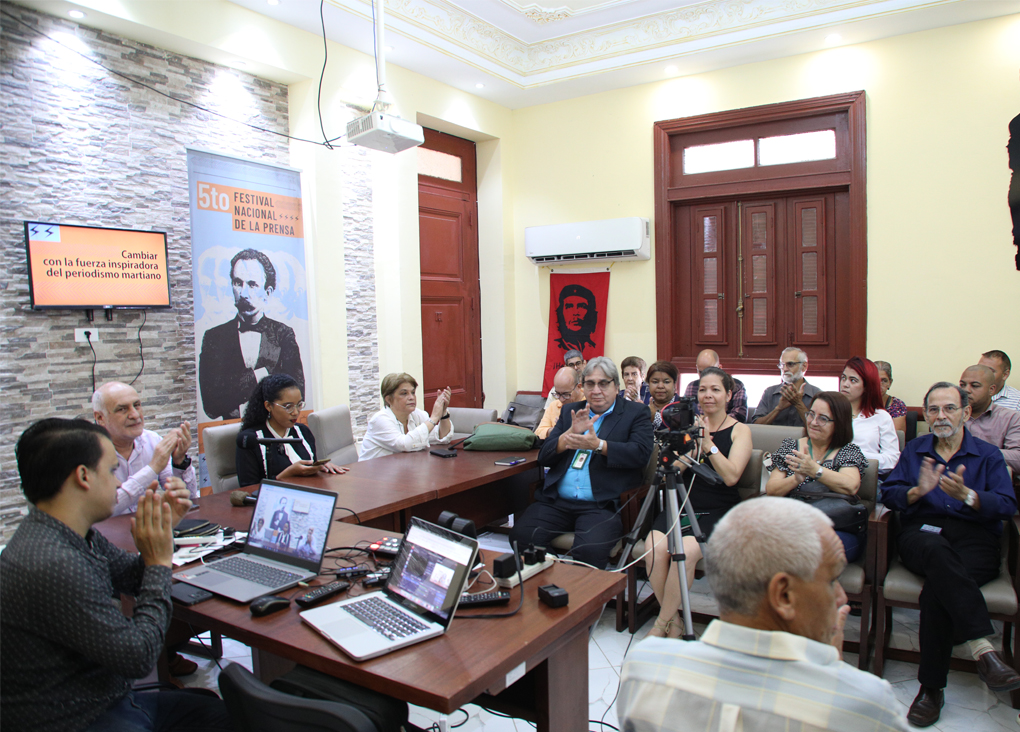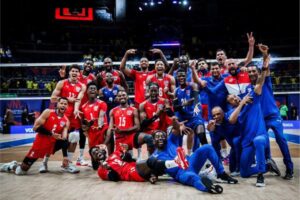The idea of change in the Cuban press is not new. The Revolution that re-founded it after 1959, to take it away from the venal, sell-out and corrupt elites and put it in the hands of the people, to give it the power of freedom of expression that it had never had before, is changing itself, and to do so it needs the most urgent transformation of its media system, as part of the country’s communication system.
It would be politically naïve, not to say irresponsible, if we were to accommodate ourselves to the idea that the press model that made the Revolution victorious until today, inherited from the practices of 20th century socialism – whose fate we already know – would be functional to guarantee the resistance and triumph of the Cuban national liberation project in the 21st century.
Prosperous and sustainable socialism, to which the surname democratic was added in its new conceptualisation, after extensive discussions, requires change, as Fidel stated in one of his supreme concepts, and to do so with everything that needs to be changed, including the press and public communication model that we inherited from the so-called real socialism, whose chronic errors and deformations made it unreal.
Ignoring the above can only cause serious imbalances in Cuban socialism, including the fact that a good part of the decisions adopted are turned against us because we ignore basic communication rules, as the First Secretary of the Party and President of the Republic denounced in the last account of his administration before the National Assembly of People’s Power.
It is serious to ignore the peculiar context in which our changes are taking place: a radical redefinition of the rules of global communication, under the aegis of an infocommunication tyranny, the accelerated conversion, without sufficient cultural antivirus, of the Cuban society into a network society, and a growing and perverse hybrid war with an emphasis on communication which, together with the dramatic effects of the VOC, has led to the creation of a new communication system.
The dramatic effects of COVID-19 are keeping us in a prolonged crisis with costly repercussions in all areas of our lives.
If this is the case so far, we would have to wonder how much more acute our scenario will become with the rise of Donald Trump to the head of the empire, escorted by the tech oligarchs who led the world into the shameful era of post-truth. The world whose grave imbalances of justice delayed the solution of the last pandemic will find it more widespread and costly to eradicate infodemia, this severe intake of global engulfment capable of making the most dehumanising and extreme Ideas popular.
The initial dispossession that these oligarchs of technology, with their chief disruptor at the helm, will seek is that of human reason through manipulation, the conquest of all its channels, first and foremost that of Panama.
That is the time when we arrive at the 5th National Virtual Press Festival. An event that was born feeding on experiences, enquiries and analysis of the past to anticipate the future. A space that, as we underlined in the first meeting, seeks to overcome the stage of collective lamentations in the press sector, for that of collective creativity, the long period of catharsis for that of projects and their concretion.
Its genesis was the idea of the Upec Presidency, born out of the 10th Congress, to establish a system of work by projects. We realised that Upec’s system of events, prizes and competitions was very focused on the recognition and promotion of individual work, which favoured or stimulated very little the integral transformation of our media.
At the same time, we had to find a way to put theory at the service of transformations, instead of fattening the moths in the drawers.
A science divorced from change and development is an atrophy and a regrettable social and civilisational waste, especially in Cuban journalism, where great professional references ended up being completed as academic paradigms.
Thus it was that the theoretical part of the event ended up honouring the master Julio García Luis, the most important scholar of the relationship between press and power in times of Revolution, while its immovation segment honours Juan Antonio Borrego, illustrious sapper of our dreams of change. Even in the hereafter, as they did in the hereafter, both personalities were taking away mines, at the risk of everything, from our sometimes apathetic and even sceptical will to revolutionise ourselves in order to revolutionise Cuba.
Without the seed of search and exploration for our journalism that was sown in the midst of the human tragedy of Covid-19, when the norm was to shut oneself away, it would not have been possible to initiate the subsequent experiment in 16 of the country’s media, whose encouraging results suggest its expansion to the rest of the national media system.
In these five years since the 1st festival, the political, legal and institutional bases were created to advance towards the construction of a new model of press and public communication for our socialism. A model that, unlike the one supported by infocommunication totalitarianism worldwide, is not at the service of the elites but of the people because of its public nature. A model that, as the first Communication Law in the history of Cuba and its Revolution states in its postulates, promotes the press as part of the mechanisms of social and popular control and accountability of the institutions to the citizenry.
It would not be enough for us to enforce the precept of the master Julio García Luis that freedom of the press is the right of organised society to have media. This premise must be complemented by the right of that society to have solid, modern, credible, innovative media, articulated among themselves and with their peers in the world and with an authority and social ascendancy that will allow them to break through the siege of lies, arrogance and hatred that seeks their moral and symbolic disarmament.
Precisely because of this, almost 130 years after the enlightening fall of the founder of Patria and the founder of patriotic and anti-imperialist Cuban journalism, for the revolutionary Cuban press change is not an option, it is an urgency.
Words at the inauguration of the 5th National Virtual Press Festival, Taken from Cubaperiodistas



